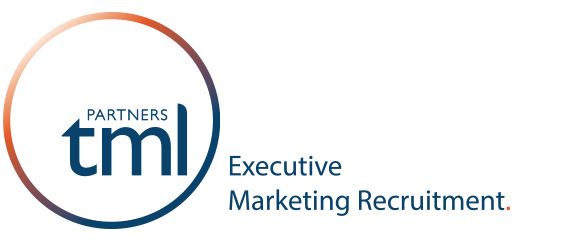In recent articles we’ve highlighted the increasing trend of a high level of turnover within CMO and other senior marketing roles. Recent Marketing Society research shows that the average time in a CMO position is just 18 months.
A combination of factors has led to this increase, but a key contributor is that candidates are not identifying the right opportunities. Marketing leaders need to adopt a strategic approach to finding their next role to ensure recruitment success.
What is marketing recruitment success?
Recruitment success is entirely subjective, but being clear on what constitutes a successful result is essential in finding the right role.
Be clear about your reasons for moving jobs – this is the simple, problem-solution part of the recruitment process. Career progression, lack of motivation or passion, different working structure needed, more money sought. Whatever your reasons for leaving, they are the first step to finding your next new role. If you don’t solve the problems of your last role, there will be no longevity in your new role. However, shifting the psychology behind your reasons for leaving and focusing on the outcome of the process can have a positive impact on identifying the right opportunities. In an article contributed to the Harvard Business Review, Dr. Heidi Grant Halvorson of Columbia University Business School explains her theory of ‘promotion focus’. This is when individuals see a venture as being about the potential for advancement, achievement or rewards. Research from a group of entrepreneurs showed that people that adopt a promotion focus were able to detect better opportunities.
Career goals
What are your career goals? This is a common interview questions – “Where do you see yourself in five years’ time?” – but it’s really important that ambitions fit with the role. For example, a Marketing Director that is aiming to be a Commercial Director, MD, CEO or CMO will need to consider carefully whether the role they are going for will allow for this. Even if the Marketing Director role being applied for is seemingly perfect, one year down the line there will be frustrations if the progression isn’t possible.
To identify whether your career goals can be achieved, you need to look at the company structure and size, their culture (are there set promotional routes or is it more fluid) and their phase in the business lifecycle. A company in growth phase is more likely to have the opportunity for quicker progression than one that is long-established and has steady year-on-year turnover. Company size is a key consideration here. There are pros and cons to both large and small organisations which can be aligned with your career choice factors. Candidates need to look beyond where their experience lies to determine what type of company to work for. Moving to a very similar role in a company of a completely different size and structure can sometimes be exactly what is needed. Incrementally increasing team size, responsibility, salary, etc. is not necessarily what will satisfy career objectives.
Large versus small
Large companies have structure, better benefits and wider-ranging internal promotion opportunities, yet are potentially slower to change than their smaller counterparts. Small companies and start-ups are more agile, they can change very quickly and roles are more likely to be varied and dynamic. On the flip-side, small companies can offer less benefits and have little or no internal structuring such as HR and legal support. Depending on your career goals, one or other might be more suitable for you. If you have constraints on your next move, such as a need for flexible working, a larger company might be able to accommodate this more easily. If you have leadership development ambitions that would see you progress to a senior management position, a small company or start-up could be right.
Building your personal brand
What are your skills, values and ambitions? At the senior level at which we recruit, marketing professionals will have had a full and potentially varied career and therefore acquired a lengthy skillset. Bring the experience and skills that align with your career goals to the front of your CV.
Many organisations have a set of values that they articulate in order to describe their approach to business and make clients understand what to expect in their service delivery. Alongside your skills and experience, outline your own values and how these fit into your working life. This provides further clarity for you as to what roles will be right and gives potential employers extra insight that can differentiate you from other candidates.
Your ‘personal brand’ when in the recruitment process extends beyond your CV and covering letter. LinkedIn accounts and any other social media platforms need to be updated and tailored with the same level of attention given to your CV. Not only will this mean you’re visible to opportunities that you will be interested in, but it also demonstrates your suitability for roles that you might apply for. Research carried out by The Society for Human Resource Management shows that the use of social media for recruitment has grown 54% in the last 5 years. The recruitment landscape has changed along with the consumer landscape – so often first impressions are sought from online sources.
Working with a marketing headhunter
If you choose to work with a headhunter, use their market knowledge and connections to understand more about what is available. Your headhunter will have a good relationship with any business that they put forward, so this is an opportunity to learn more about a business before getting in front of them. In order to leverage this, you need to commit to the relationship with your headhunter, maintain an open dialogue and don’t just speak to them when you’re actively looking for a new role. Keeping in touch throughout your career with one or two trusted recruitment advisors will mean, when you do come to move, you’ll be front of mind and the opportunities that are put forward are far more likely to be a good fit for you.
Part 2 on the recruitment success factors from interview through to offer stage can be read here.
Simon Bassett is the Managing Director of tml Partners.
tml Partners specialise in placing CMOs, Marketing Directors and their management teams.




